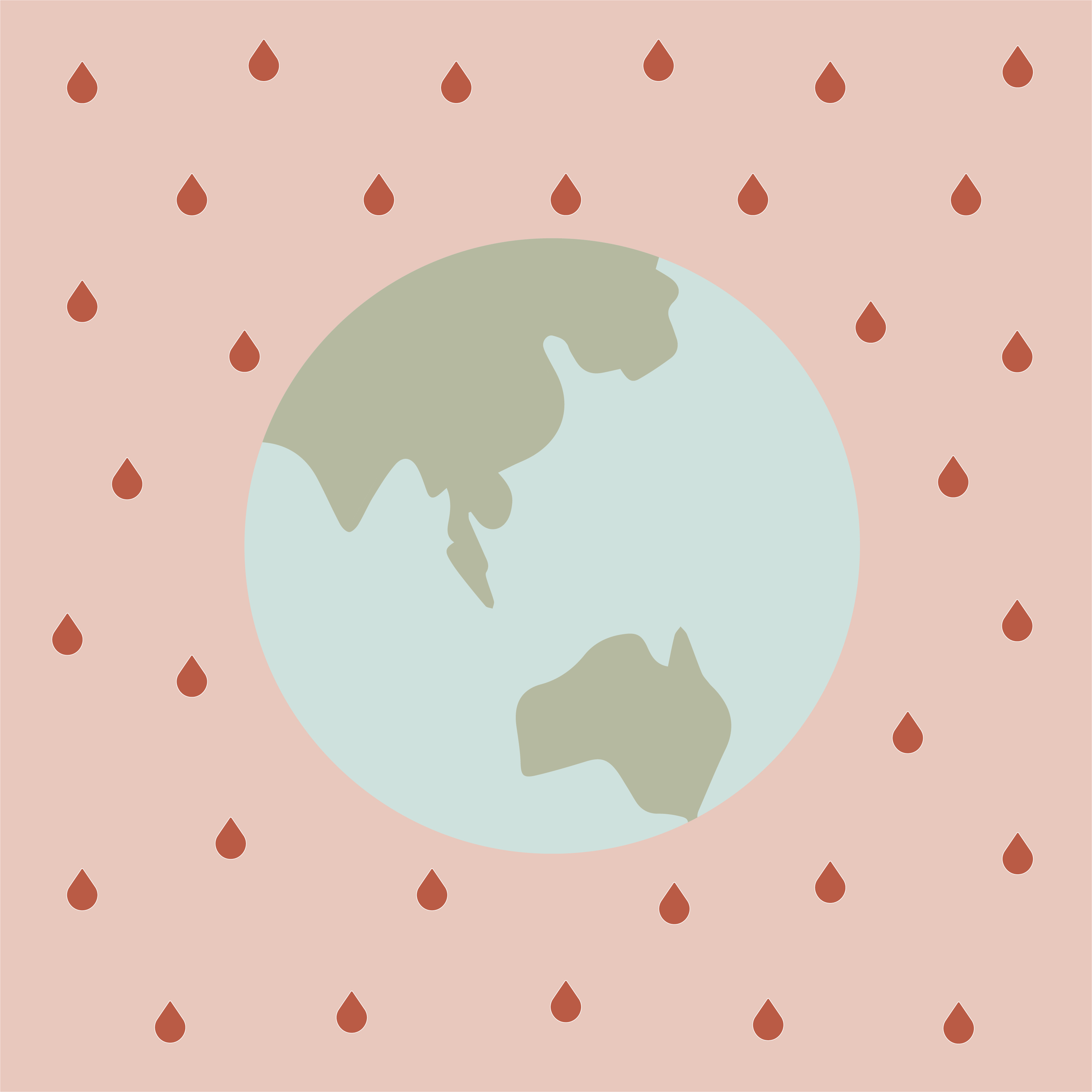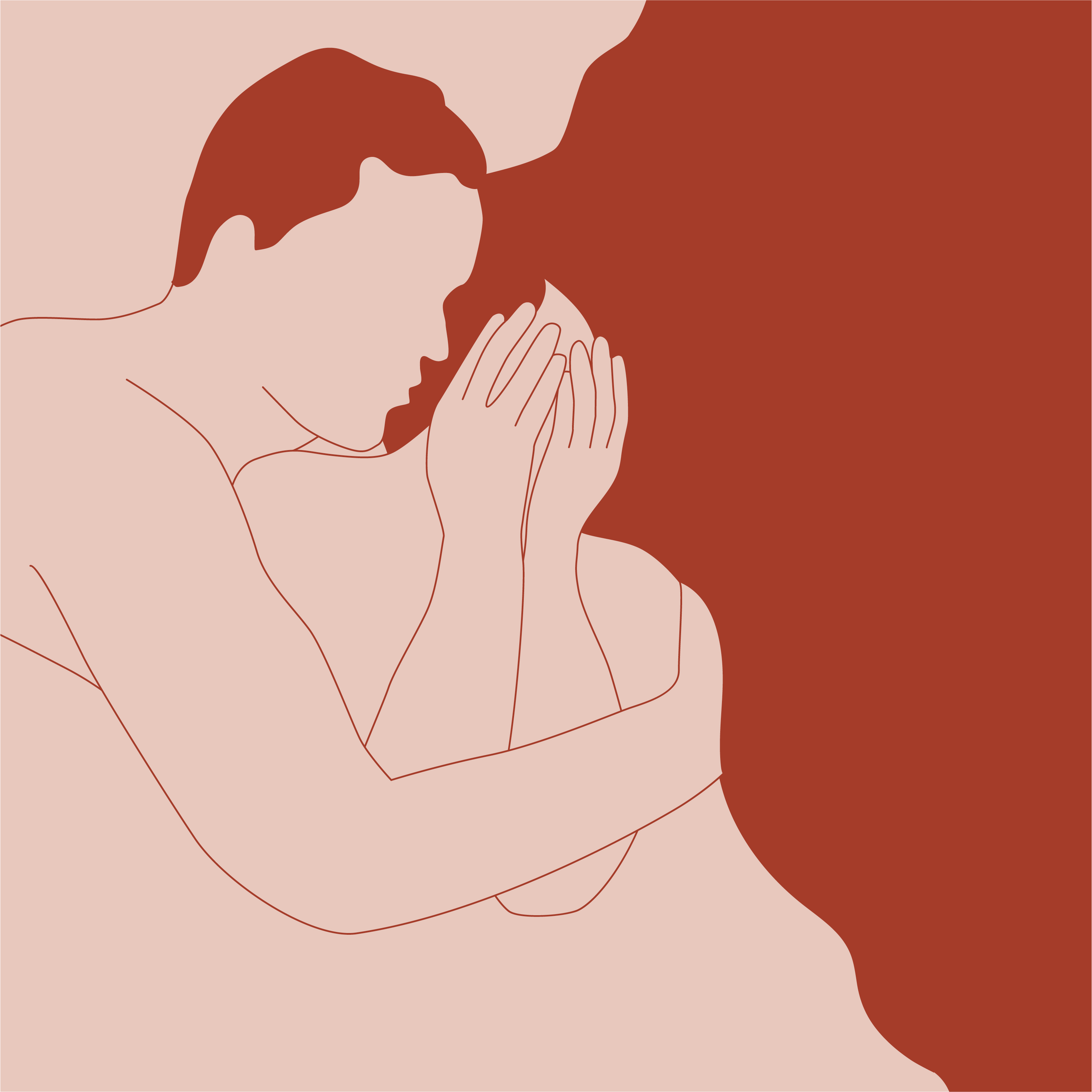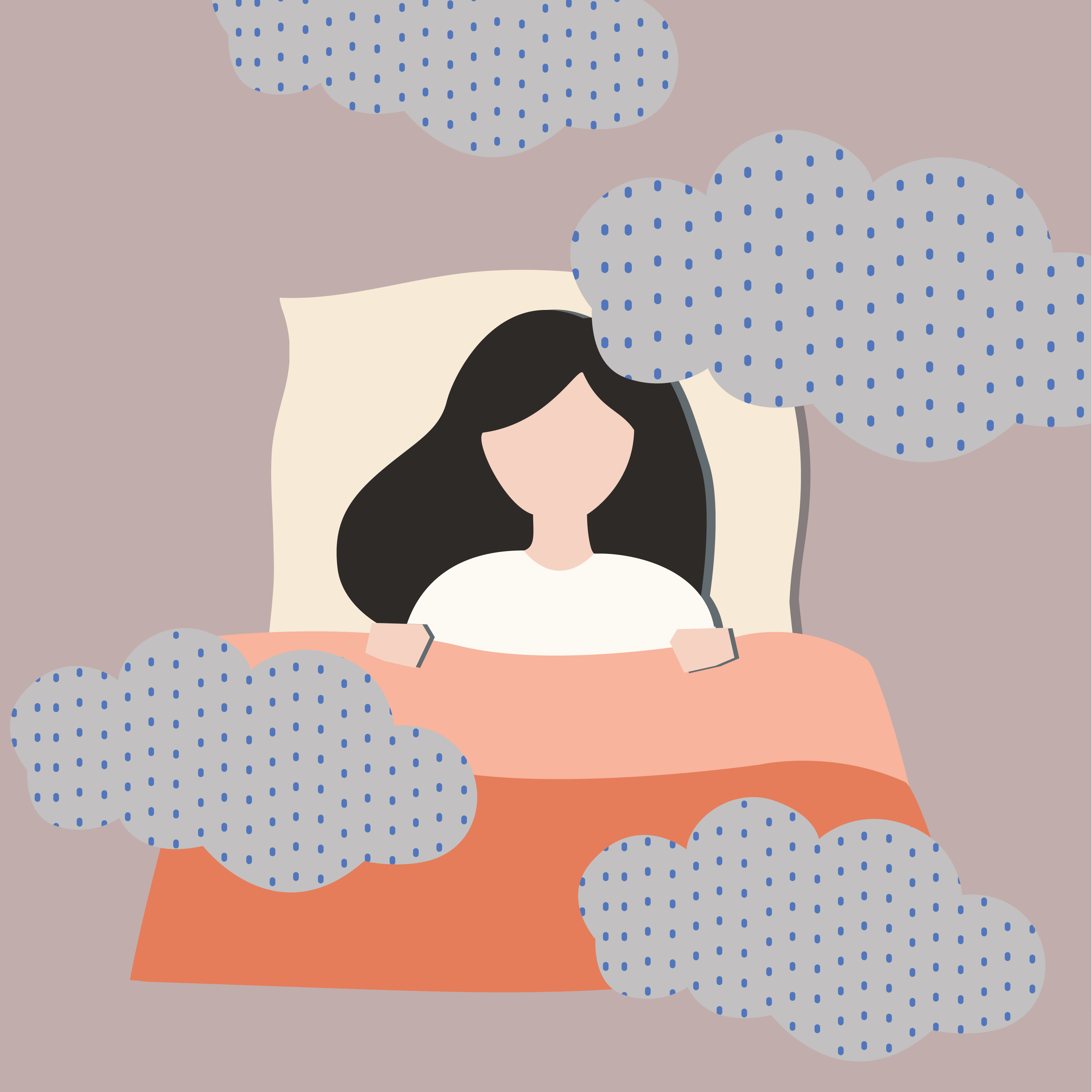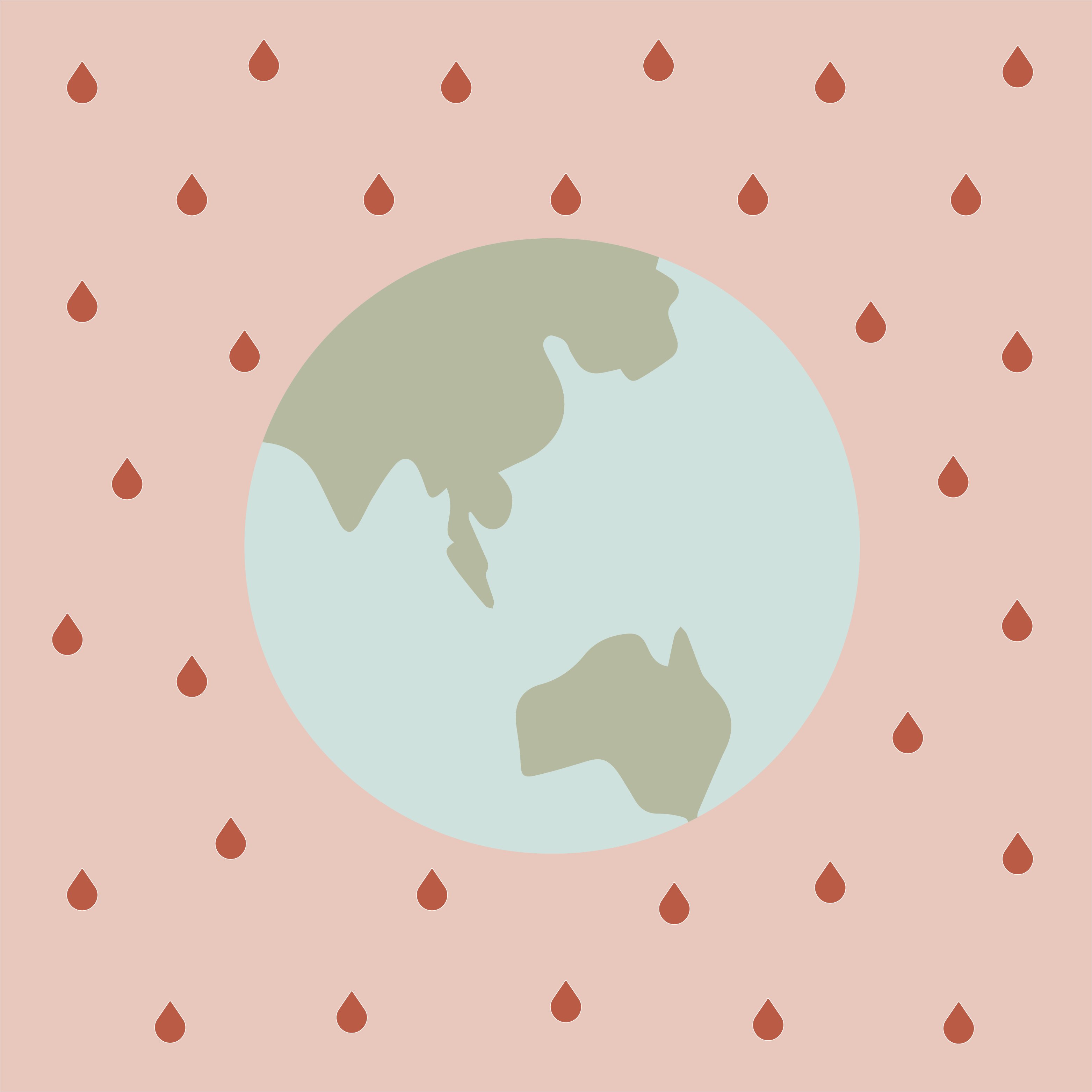Jun 08, 2022
EXPLORING PERIOD CARE IN CULTURES AROUND THE WORLD
By Sabina McKenna
I woke up one morning after a long night of period cramps, still wearing my house socks and robe, with a cold ‘hot water bottle’ on my lap, covered in chocolate wrappers. As I peeled myself out of bed, desperately searching for some Nurofen, in that moment I realised I was the perfect period-having cliche.
It got me thinking about where it all started. For as long as I can remember the prescription for period cramps was treating yourself to indulgent food - for most that is something rich or sweet - and then some further (and agreeably much needed) indulgence in the form of a hot bath, tea, or heat pack of some description. This, or close versions of, was clearly how we thought of PMS care in the West. Which left me wondering: how does period care happen in other parts of the world?
Following some more research, I found that period care outside of Western cultures is in fact richly diverse, interesting and inspiring, and also at times a little weird and wacky.
The Ojibwe people isolate themselves in a ‘moon lodge’.
It’s not uncommon for periods to be thought of as something to have in private, but for the Indigenous-American Ojibwe people this belief is held in a positive light that sees menstruating in a secluded, private place as a nurturing ritual for your body(1). During this cultural practice, carried down through generations, the older women of the Ojibwe tribe build a small wooden house typically for the younger girls to live in. While there are introspective practices, storytelling and spiritual lessons are shared with elders. The Ojibwe people believe that menstruating women possess strong spiritual power(2), (and I tend to agree) making it the perfect time for enlightening, learning and restorative rest.
Filipino matriarchs encourage feet warming and menstrual blood skin care.
My Filipino stepmother shared that she was under strict instruction to keep her feet warm while menstruating, and treated cramps with a Chinese White Flower liquid. ‘My mother always told me not to walk around barefoot as the cold of the floor was not good for me’, shared Melinda. ‘If I ever had a sore belly she would rub white flower around my belly button, which is a Chinese menthol liquid. It would always work, and Hannah [my daughter] does that now and it works for her too’.
More widely documented in Filipino culture though is the ‘menstrual blood facial’. Something that might seem quite unusual at first read, but actually checks out [through a Western lens] when you consider that blood and plasma are commonly used in Western dermatological practices too, perhaps made most famous by the Kardashians who often talk about their favorite ‘blood treatment’ by Doctor Diamond.(3)
Wiping or washing your face with period blood in Filipino culture is thought to prevent acne and preserve youth. Historically this was practiced using the very first period.(4)
The Ambubachi Mela celebrates a bleeding goddess by throwing her a party.
Perhaps the most exciting discovery I made is that in some cultures not only are periods not considered ‘gross’, but they call for an entire party. Enter the Ambubmchi Mela, a Hindi celebration and yearly gathering, held in honor of the goddess Kamakhya at what is said to be during the time of her yearly menstruation. Spiritually the annual festival likens the planet ‘mother earth’ to a menstruating woman and involves a three-day pilgrimage that is meant to symbolise going through the cycles of menstruation.(5) The local Kamakhya temple remains closed during the three-day journey, (for the time of rest during menstruation) and things like cooking, reading holy books and farming are not allowed. A stone shaped yoni is bathed and worshiped, and the river is turned a blood red using the ceremonial drink (iron-oxide) - symbolic of the deities’ menstrual blood.
The Amazonian Tikuna tribe in Brazil inaugurate ‘womanhood’ with a three-month long spiritual retreat.
A recurring cause for celebration across many cultures was a person’s ‘first period’, marking the transition from being ‘a girl to a woman’ (or a young person to a mature person). For women of the Tikuna tribe, having a first period is more than just a physical development; it is a spiritual milestone and rite of passage through the experience of learning to live and look after yourself alone.(6)
The retreat is called the Pelezon. And the tribe's younger girls are mentored by the older women in the tribe, through cultural dance and historical teaching. Throughout the retreat the women let their hair grow out, and to mark the ending of the ceremony, then have it cut short during a final celebration of their arrival to ‘womanhood’.
Sadly, among the many celebratory period care practices I discovered, there were also many traditions of shunning or shutting out people who are menstruating. It is clear that there is still a long way to go before the understanding and appreciation for what people’s bodies go through while they are menstruating is positive and uniform. Realising that makes documenting the practices and rituals that nurture, respect and celebrate people who bleed all the more valuable to share.
References
- 5 Menstrual Rituals Around the World and What They Can Teach Us, The Fornix, https://bit.ly/3KzsBq4
- How a Native American Coming of Age Ritual is Making a Comeback, The Conversation, https://bit.ly/3s4cScl
- Abso-bloody-lutley: Five Uses For Your Period Blood Every Month, Dazed Digital, https://bit.ly/3y5frhY
- 11 First Period Traditions From Around The World That Celebrate a Girls Transition into Womanhood, India times, https://bit.ly/3KzJdOv
- 5 Things You Might Not Know About The Ambubachi Mela, East Mojo, https://bit.ly/3MLLJ5E
- 14 Breathtaking Photos Reveal How These Women Celebrate Their First Periods, Refinery 29, https://r29.co/3LujCI9
Blogs

Jun 08, 2022
EXPLORING PERIOD CARE IN CULTURES AROUND THE WORLD
Our TOM Talks panelist Sabina McKenna explores how different cultures around the world approach period care.
Read More
Jun 08, 2022
STOP APOLOGISING FOR HAVING YOUR PERIOD
Our TOM Talks panelist Mel Mason talks about the importance of not apologising for having your period.
Read More
Jun 07, 2022
STRESSED? NOT SLEEPING? TRYING TO CONCEIVE?
TOM Talk's panelist Georgia Hartmann discussed the links between stress, sleep and fertility.
Read More
Jun 07, 2022
STRESS AND HOW IT AFFECTS YOUR SEX DRIVE
Certified sex coach Georgia Grace is here to unpack the link between stress and sex.
Read More
